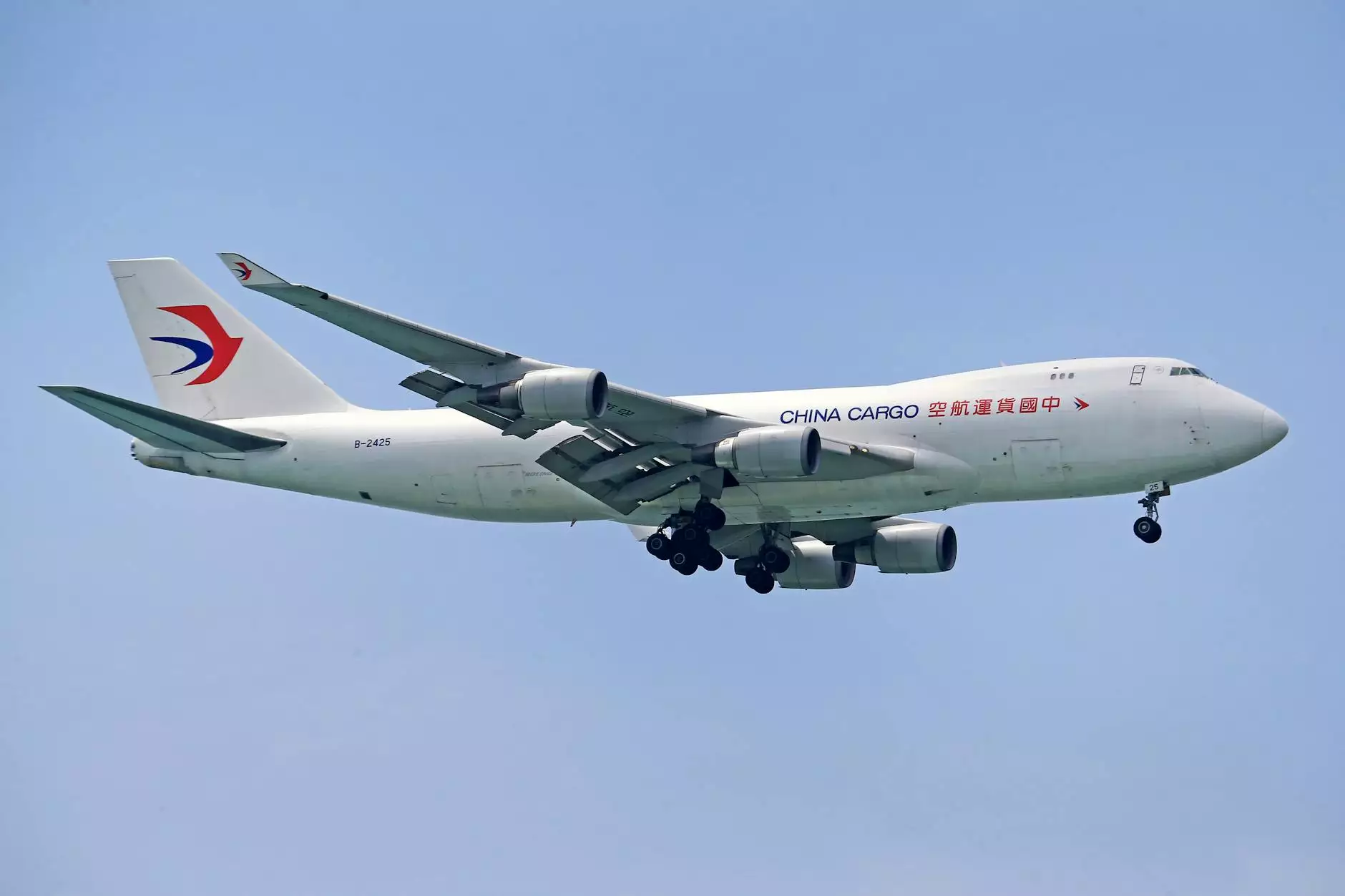Unlocking the Full Potential of Air Freight Services: An In-Depth Exploration of Pricing, Logistics, and Airport Solutions

In today's fast-paced global economy, businesses demand reliable, cost-effective, and efficient freight solutions to stay competitive. With the rapid expansion of international trade and e-commerce, understanding the intricacies of air freight, including air freight price per kg and associated logistics, has become crucial for entrepreneurs, logistics professionals, and corporate decision-makers alike.
1. The Significance of Air Freight in Global Business
Air freight has cemented itself as an essential component of international logistics due to its unparalleled speed and reach. Unlike sea transport, which, although economical for bulk shipments, often involves lengthy transit times, air freight offers swift delivery, making it ideal for time-sensitive shipments such as perishable goods, high-value electronics, fashion items, and critical industrial components.
Moreover, with the development of a vast network of airports worldwide, air cargo services enable seamless transportation across continents, fostering trade expansion and market globalization. For businesses operating on tight deadlines, understanding how to manage and optimize air freight logistics can be a game-changer to uphold competitiveness and customer satisfaction.
2. Deep Dive into Air Freight Pricing: The Air Freight Price Per Kg
One of the most commonly asked questions by shippers is: What is the typical air freight price per kg? The answer is multifaceted, as air freight costs vary based on several factors including weight, volume, destination, and the specific carrier or service level chosen. Understanding these dynamics enables businesses to plan budgets more accurately and negotiate better rates.
Factors Influencing the Air Freight Price Per Kg
- Shipment Weight and Volume: While weight is a primary determinant, volumetric weight (based on dimensions) can often influence costs more significantly for large, lightweight packages.
- Destination and Distance: Long-haul international routes generally have higher costs compared to regional or domestic flights, but this also depends on market demand and fuel prices.
- Type of Service: Express, standard, or economy freight options influence pricing, with express services charging premium rates for faster delivery.
- Fuel Surcharges and Currency Fluctuations: Fluctuations in fuel prices and currency exchange rates impact the cargo rates dynamically, making regular market analysis essential for cost control.
- Special Handling and Cargo Type: Dangerous goods, perishables, or fragile items require special handling, which can significantly increase costs.
For instance, the air freight price per kg can range from as low as $3 to over $10 depending on these factors. In highly competitive markets or during off-peak seasons, rates tend to decrease, providing strategic advantages for savvy shippers.
3. How to Optimize Air Freight Expenses
Effective cost management in air freight involves several strategic actions:
- Consolidate Shipments: Group multiple small shipments into a single pallet or container to leverage economies of scale and reduce per-kg costs.
- Flexible Scheduling: Adjust shipment timings to capitalize on lower rate periods or off-peak seasons.
- Choose the Right Carrier: Evaluate carriers offering favorable rates, reliable transit times, and excellent service quality.
- Leverage Technology: Use advanced shipping management platforms like cargobooking.aero to compare rates, track cargo, and streamline logistics operations.
- Negotiate Long-term Contracts: Establish contractual agreements with logistics providers for discounted air freight price per kg rates in exchange for volume commitments.
Implementing these tactics can lead to substantial savings and operational efficiencies, directly impacting your bottom line and enabling you to offer competitive pricing to your customers.
4. The Role of Shipping Centers and Transportation Networks
Shipping centers serve as critical nodes in the global logistics network, acting as hubs for consolidating, sorting, and dispatching cargo. Positioned in strategic locations, these centers optimize transit routes and facilitate seamless cargo movement from warehouses to airports and final destinations.
Effective transportation management within these centers involves:
- Utilizing advanced tracking systems
- Coordinate with airlines and trucking services for timely pickups and deliveries
- Employing automation to reduce errors and speed up processing times
- Ensuring compliance with customs and safety regulations
By enhancing the efficiency of transportation and shipping centers, businesses can reduce transit times, lower costs, and improve overall service quality, which is vital in highly competitive industries.
5. Airports as Critical Logistics Enablers in Air Freight
Airports are more than just gateways—they are vital logistical hubs that facilitate rapid cargo movement across continents. Well-connected airports with state-of-the-art facilities and customs efficiency significantly influence the overall air freight price per kg and delivery timelines.
Modern airports offer:
- Dedicated Cargo Terminals: Specialized zones with infrastructure tailored for high-volume cargo processing
- Fast Customs Clearance: Advanced customs procedures minimize delays and cost overruns
- Integrated Transport Links: Efficient road, rail, and air connections optimize last-mile delivery
- Technological Innovations: Automated handling, real-time tracking systems, and predictive analytics for operational excellence
Choosing the right airport partner can reduce transit times, improve reliability, and power competitive advantages in your supply chain. Partnering with experienced logistics companies like cargobooking.aero ensures access to extensive airport networks and optimized routing solutions.
6. Future Trends in Air Freight and Logistics Innovation
The air freight industry is evolving rapidly, driven by technological advancements and changing customer demands. Key trends to watch include:
- Automation and AI: Increased use of AI algorithms for optimized routing, predictive maintenance, and real-time decision-making.
- Green Logistics: Sustainable practices such as fuel-efficient aircraft, carbon offset programs, and eco-friendly packaging to meet environmental commitments.
- Blockchain Technology: Enhanced transparency and security in cargo documentation and tracking.
- Expansion of On-Demand Air Freight: Flexibility in service offerings catering to urgent, small-scale shipments for niche markets.
Staying ahead in this competitive landscape requires continuous innovation, strategic partnerships, and an emphasis on sustainability—all areas where cargobooking.aero helps its clients leverage cutting-edge solutions for superior logistical performance.
7. Why Choose cargobooking.aero for Your Air Freight and Shipping Needs
As a leading logistics platform specializing in Shipping Centers, Transportation, and Airports, cargobooking.aero offers unmatched expertise in managing freight operations seamlessly. Its features include:
- Comprehensive Rate Comparisons: Instant quotes to find the most competitive air freight price per kg
- Real-Time Tracking: Transparent visibility throughout the shipment journey
- Integrated Logistics Management: End-to-end solutions from pickup to delivery
- Customs and Compliance Assistance: Reducing delays and avoiding costly penalties
- Dedicated Customer Support: Personal assistance and strategic consulting for optimal logistics planning
Partnering with experts like cargobooking.aero ensures your business capitalizes on the latest logistics innovations, cost-effective rates, and reliable delivery timelines—empowering you to focus on growth and customer satisfaction.
Conclusion: Mastering Air Freight for Competitive Advantage
Understanding the complexities behind air freight price per kg and the integrated logistics ecosystem that supports it is essential for modern businesses aiming for efficiency and cost-effectiveness. From strategic shipment consolidation to leveraging advanced airport facilities and innovative transportation networks, every element plays a critical role in optimizing your supply chain.
Empower your business by adopting smart logistics strategies, harnessing technological tools like cargobooking.aero, and staying informed about industry trends. In doing so, you position yourself ahead of competitors, able to offer rapid, reliable, and affordable freight solutions across the globe.









